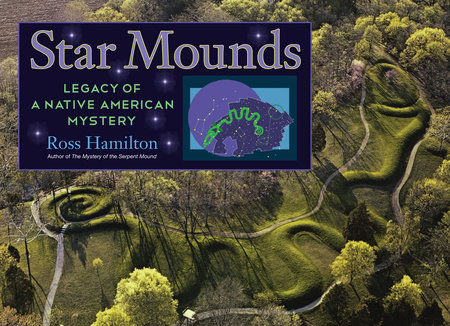Star Mounds is a full-color illustrated study of the precolonial monuments of the greater Ohio Valley, woven together with over fifty “medicine stories” inspired by Native American mythology that demonstrate the depth of the knowledge held by indigenous peoples about the universe they lived in.
The earthworks of the region have long mystified and intrigued scholars, archeologists, and anthropologists with their impressive size and design. The landscape practices of pioneer families destroyed much of them in the 1700s, but, during the first half of the 1800s, some serious mapmaking expeditions were able to record their locations. Utilizing many nineteenth-century maps as a base—including those of the gentlemen explorers Ephraim Squier and Edwin Davis—author Ross Hamilton reveals the meaning and purpose of these antique monuments.
Together with these maps, Hamilton applies new theories and geometrical formulas to the earthworks to demonstrate that the Ohio Valley was the setting of a manitou system, an interactive organization of specially shaped villages that was home to a sophisticated society of architects and astronomers. The author retells over fifty ancient stories based on Native American myth such as “The One-Eyed Man” and “The Story of How Mischief Became Hare” that clearly indicate how knowledgeable the valley’s inhabitants were about the constellations and the movement of the stars. Finally, Hamilton relates the spiritual culture of the valley’s early inhabitants to a kind of golden age of humanity when people lived in harmony with the Earth and Sky, and looks forward to a time when our own culture can foster a similar “spiritual technology” and life-giving relationship with nature.
Star Mounds
